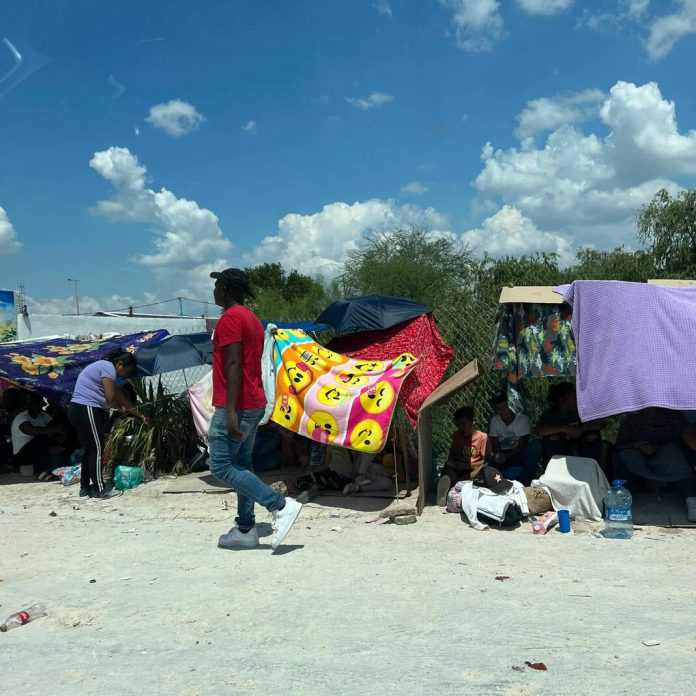A process that allowed vulnerable migrants to legally enter the U.S. and seek asylum through the McAllen port of entry came to a sudden stop on Thursday. The process, however, will continue in the lower part of Cameron County.
Title 42, a border policy implemented during the COVID-19 pandemic, largely bars migrants from seeking asylum in the U.S and has been used over 3 million times to return migrants back to Mexico if they try to cross.
However, some migrants — those who are sick, pregnant or prosecuted — may receive an exemption to the policy. U.S. Customs and Border Protection officers would handle those exemptions in Reynosa through the Senda de Vida shelter and the help of various nongovernmental organizations (NGOs), like the Sidewalk School.
About 60 people a day were crossing on average, according to some estimates, but on Thursday, NGOs were told those exemptions were coming to an end.
“CBP may, on a case by case basis, provide exceptions to Title 42 for particularly vulnerable individuals,” a CBP official said on background. “In order to ensure the credibility and availability of the Title 42 exception process, the Laredo Port of Entry and Hidalgo Port of Entry will temporarily pause processing of Title 42 exceptions while we work with federal and nongovernmental partners to resume processing.”
Victor Cavazos, co-founder of the Sidewalk School, said they had already heard of the process coming to a halt in other places like Nuevo Laredo and Ciudad Juarez.
“That happened just this week, and today we got word that it’s happening in Reynosa,” Cavazos said.
The Sidewalk School and a church operate a Reynosa shelter for vulnerable migrants called Kaleo International, and they help other shelters in the area and Matamoros with donations, medical attention, and other equipment.
The number of people in shelters grew quickly during the pandemic because many who crossed were sent back to Mexico, while many others arrived and waited for the policy, Title 42, to change. About 50,000 people are estimated to be waiting on the Mexican side, with up to 10,000 in Reynosa and some 1,200 in Matamoros.
“We were told as of today, Matamoros would continue (to accept exemptions),” Cavazos said.
A CBP official confirmed it too.
“But they do have a smaller window of people they can cross per day,” Cavazos said. “And you do have to be in Matamoros for that to be available to you.”
Thousands of migrants are aware of the exemption process in Reynosa and chose to stay in the city hoping to become eligible. But now, the population may shift from Reynosa, where nearly 60 people were crossing per day, to about 10 people on average in Matamoros.
In response to the great crowds waiting in Reynosa since the pandemic, a new shelter was created and organizations banded together to address the growing needs.
Many of the migrants are from Haiti, a country thrust into chaos and violence following the assasination of its president last year. Others are from Central America. Many of them are living on the streets waiting for shelter space to open up.
Unrest has grown in the last couple of weeks, and some migrants have participated in protests.
“Protest is an acceptable form of expression both in Mexico and the U.S.,” Cavazos said. The demonstrations, however, did not lead to injuries or property damage, he said.
Cavazos said many of those who have been waiting the longest are single adult men who don’t typically meet the demographics of those considered vulnerable by the U.S.
For some, hopelessness is an absolute. This week, Cavazos said a Haitian man in his 20s who traveled with his girlfriend and cousin died in a Reynosa hospital. Although his eligibility for the exemption was unclear, he was among those waiting to enter the U.S.
“We’re just going to let them know that there’s still hope,” Cavazos said. “The process has not stopped, just hold on for a bit longer. We’re going to be here to help everybody out as best we can.”
CBP did not cite a reason for suddenly halting the exemption process nor did it say when it may resume.




